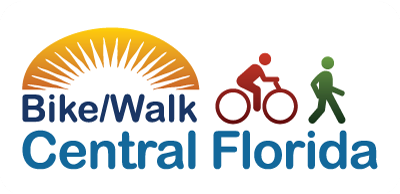 OrlandoSentinel
OrlandoSentinel
Florida cyclists fight bill requiring them to stay in bike lane
By Dan Tracy, Orlando Sentinel
4:22 PM EDT, May 19, 2010
A 16-word addition to a state highway-safety bill sounds innocuous enough, directing, as it does, bicyclists to use marked bike lanes when available or to hug the right side of the road.
That’s what they are supposed to do, right?
Not so fast, say cyclists who belong to the Florida Bicycle Association and Bike/Walk Central Florida, a nonprofit group representing pedestrians and riders.
They want Gov. Charlie Crist to veto the recently approved bill (HB 971) because they say bike lines often are not safe and the side of the road can be even worse.
“It’s a fear-based law,” said Brad Kuhn, an avid rider and director of Bike/Walk Central Florida.
Bicyclists need the flexibility to ride farther into the road to increase their visibility with motorists, Kuhn said. He added that bike lanes often are placed too close to parking spaces, making riders vulnerable to people who open their car doors without looking.
He is among hundreds of cyclists who have written or called Crist’s office to urge him to reject the bill, which, at 81 pages, contained numerous provisions related to Florida roads. It would take effect Sept. 1 with Crist’s signature.
Crist spokesman Sterling Ivey said the governor hasn’t decided what he will do. He said Crist has yet to receive the bill from the Legislature, which adjourned last month. So far, the office has received almost 1,250 calls in opposition versus 69 in favor in the bill. Ivey could not say how many were related to the bike lanes.
The bill was sponsored by Rep. Gary Aubuchon, R-Cape Coral, who said Wednesday that he often rides a bike and cannot understand why his fellow cyclists would be against his proposal.
“If they don’t want to ride in the bike lanes, why are we spending all this money on them in the first place?” Aubuchon said.
The provision, added under the bicycle-regulations portion of the bill, was inserted at the request of another South Florida legislator who had fielded numerous complaints from motorists about large groups of bicyclists taking up too much space on scenic State Road A1A.
That criticism upsets Kuhn, who said, “To create a piece of broad legislation to address a local or regional issue does not seem like a good use of our taxpayer resources.”
Bike supporter Mighk Wilson concedes cyclists sometimes are inconsiderate and should break up into smaller riding groups to avoid hogging the roads. But, he said, that’s no reason to write a law forcing cyclists into bike lanes, even though the bill allows riders to move out of them to avoid potholes, debris or to pass slower bikes.
The biggest problem is that people do not know there are exceptions to the rules applying to bikers, said Wilson, pedestrian and bicycling manager for MetroPlan, which sets transportation policy in Orlando, Orange, Seminole and Osceola counties.
“People hear about a statute second- and third-hand, and they don’t read them,” he said.
Even law-enforcement officers sometimes misunderstand the rules, said Hal Downing, a board member of Bike/Walk and Windermere attorney.
“I think that there is a bias that has been built into every driver that ‘traffic’ means motorized vehicles and that cyclists have no rights or, in any case, are subservient to automobiles,” he wrote in an e-mail.
A survey completed in August for the bicycle association discovered plenty of distrust among bikers, walkers and motorists.
“Overall,” the study found, “the research showed participants viewed bicyclists especially, and pedestrians to some extent as well, as intrusions that made driving difficult because they break the flow of traffic and/or made participants worry they might hit them.”
Frustration is rampant on the roads, the study said, because of a “lack of knowledge of right-of-way rules and other regulations governing pedestrians and cyclists on the road, as well as a belief that cyclists and pedestrians frequently flout regulations and basic safety rules.”
But the bike-lane provision isn’t the only issue that is drawing complaints about the bill, according to Crist’s office. Two other sections drawing comments are:
The so-called “Villages” rule that would allow local governments to approve the use of golf carts, motorized scooters and other similar vehicles on large sidewalks or pathways typically set aside for pedestrians. The Villages is a reference is to the large retirement community in north Central Florida where many residents ride about on golf carts.
Allowing a motorist convicted four times of driving under the influence of alcohol to apply for a drivers license if 10 years has passed since the last conviction or completion of a jail or prison sentence. The offender could be allowed to drive to work, although only under the supervision of the state and likely with the use of a device called an interlock that would not permit the car to work if the driver had been drinking. The provision has the approval of MADD, Mothers Against Drunk Driving .
Aubuchon said he was aware of “the noise out there” over some of the requirements of the bill, but he had not been contacted by many people with complaints.
He said the Villages rule only permits local governments to make the change if residents support it.
The DUI provision, he said, gives law enforcement the ability to better track problem drinkers because, he said, many are already on the road illegally because they are driving without a license.
Permanent revocation of a license “does not stop people driving for life,” he said.
Dan Tracy can be reached at [email protected] or 407-420-5444.
Copyright © 2010, Orlando Sentinel

